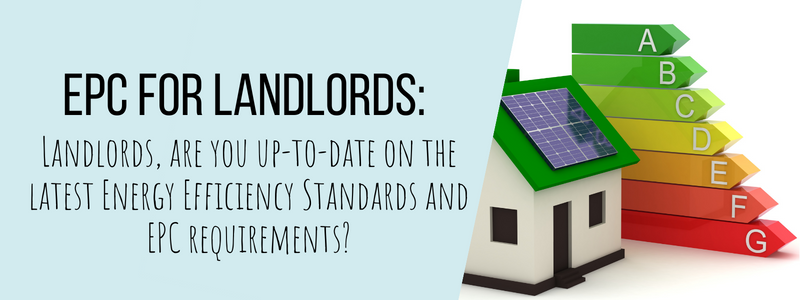Landlords, are you up-to-date on the latest Energy Efficiency Standards and EPC requirements?
Reading Time: 3 minutes
March 21, 2023

The importance of reducing greenhouse gas emissions and tackling climate change has led to a wave of regulations and policies aimed at improving energy efficiency in buildings. One of the key measures is the Minimum Energy Efficiency Standards (MEES) regulations, which have been in force since 2018 and require properties to meet a minimum Energy Performance Certificate (EPC) rating to be rented out. As part of the UK government’s commitment to achieve net-zero emissions by 2050, there are upcoming changes to MEES and EPC requirements for both commercial and residential properties. These changes could affect landlords who own properties that are not yet compliant, and it is important for them to be aware of the new rules to avoid penalties and ensure their properties are available for renting.
Landlords must be aware of the changes to Minimum Energy Efficiency Standards (MEES) and Energy Performance Certificate (EPC) requirements to comply with the new laws and avoid severe penalties . It is essential to note that commercial properties cannot be leased to new or existing tenants if their EPC rating is F or G. From April 1, 2023, renting out a commercial property that does not have a rating of at least E will be an offense, and the penalty may range from £10,000 to £150,000 per breach based on the property’s rateable value.
It is expected that the requirements will become more stringent, with a proposal for a rating of C or higher for commercial properties by April 1, 2027, and B or better by 2030. Similarly, the requirement for residential properties’ EPC rating to be E or higher has already been in place since April 1, 2020. This requirement will increase to C or higher for any new tenancies in 2025 and all continuing tenancies in 2028.
It is the landlord’s responsibility to comply with the legislation, and the costs may not be delegated to the tenant, although in some cases, they may be recoverable from the service charge. To avoid severe penalties, investors, developers, and landlords should review their portfolios and obtain EPCs where they are not already in place. They should consider the costs of upgrading works, the potential loss of income if the property cannot be rented, and the level of fine for non-compliance.
Applications for third-party consents or exemptions should be made if required. However, landlords should note that experts and contractors may be busy with the approaching deadline. Therefore, they should act sooner rather than later. It is important to mention that landlords who do not carry out sufficient works to improve their property’s EPC rating to A-E or register for a valid exemption by April 1, 2023, will face penalties.
Property owners must demonstrate that there is an appropriate EPC rating in place, that all relevant energy efficiency improvements have been made, or that there is a valid exemption. Several exemptions are available, including consent, devaluation, and short-term letting exceptions.
It is crucial for landlords to take the necessary steps to comply with the new Minimum Energy Efficiency Standards (MEES) and Energy Performance Certificate (EPC) requirements. Failure to do so could result in severe penalties and a loss of rental income. Therefore, landlords should review their portfolios, obtain EPCs where necessary, and consider the costs of upgrading their properties. Seeking expert advice and acting promptly can help landlords avoid non-compliance and ensure their properties are available for renting. Don’t wait until it’s too late, take action now to ensure compliance and protect your investments.




















Follow us for updates